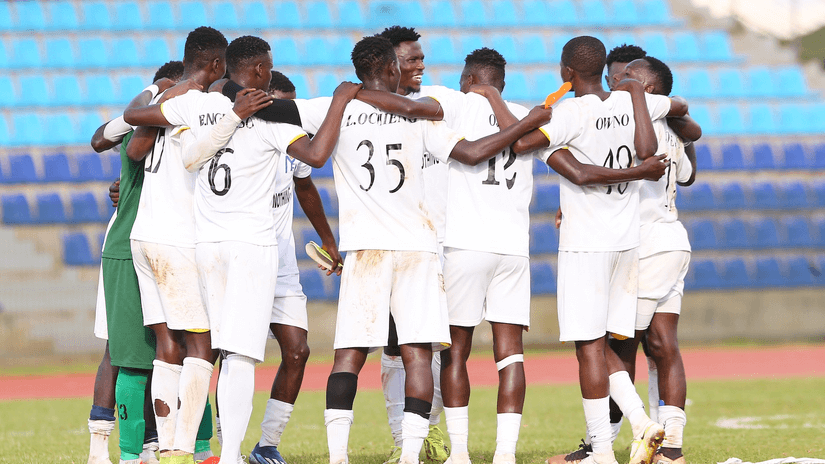The heart of Kenyan football is beating faster these days, not because of a spectacular goal or an underdog’s victory, but due to the dark cloud cast by the FKFPL match-fixing scandal. What began as whispers has exploded into a wide-reaching crisis, upending not just the destiny of one of the nation’s clubs but also threatening the very fabric of trust upon which the game is built.
The shocking punishment that shook Kenyan football
For Muhoroni Youth, the price of wrongdoing has been devastating. Following a thorough investigation, FIFA’s Disciplinary Committee delivered an unforgiving verdict: immediate relegation. This verdict, confirmed on May 2, 2025, saw the club expelled from the National Super League and demoted to Division One, serving as proof that football’s authorities will not turn a blind eye to manipulation even at this level. The statement from FIFA was succinct yet chilling in its clarity, finding Muhoroni Youth guilty of “activities related to the manipulation of football matches and competitions.”
In the words of the Football Kenya Federation (FKF), “We are launching a full-scale war on match-fixing in collaboration with FIFA, CAF, and all relevant authorities.” General Secretary Harold Ndege pulled no punches, vowing that anyone found culpable will face the full consequences of their actions. Each word underscores a zero-tolerance stance that the federation claims leaves “nobody spared.”
The investigations and the impact
The specifics of the manipulated matches have not been disclosed, which adds a shroud of mystery and raises questions among fans and analysts alike. Yet, the repercussions are tangible. Muhoroni Youth’s relegation is not just a line on a table—it is a blow to players’ careers, staff livelihoods, and fans’ dreams. The club, rooted in Kisumu and sitting 18th in the National Super League prior to their expulsion, now faces a tough journey of repair—if repair is even possible. FIFA’s communication made clear that the incidents were grave enough to warrant not just sanctions, but expulsion, underlining football’s global pushback against corruption and match manipulation.
The FKF was not alone in its ordeal. Vietnamese club Phu Tho faced a similar fate for related irregularities. The global nature of these sanctions serves as a reminder: the integrity of football is a battle that knows no borders.
| CASINO | BONUS | INFO | RATING | |
|---|---|---|---|---|
|
bonus
New players get 50 free spins and a Ksh 2500 freebet!
See 7 Bonuses
|
info
BK 0000665 PG 0000405 Good combination of online casino and betting platform |
|||
|
bonus
Refer friends, win cash prizes!
|
info
BK 0000672 PG 0000412 Mobile-friendly |
|||
|
bonus
Earn points on every bet, convert to cash rewards!
See 7 Bonuses
|
info
BK 0000689 PG 0000414 Amazing Android app, sleek and user-friendly site, and over 1000 casino games |
|||
|
bonus
170% crypto bonus up to $1000
See 11 Bonuses
|
info
Curacao OGL/2024/1798/1048 Over 6000 casino games & rewarding VIP program. |
Human faces in the eye of the storm
Scandals in sport are rarely just about institutions or abstract rules—they are also, tragically, about individuals. The FKFPL match-fixing saga has brought two goalkeepers, Patrick Matasi and Ezekiel Owade, into the harshest of spotlights. Their stories, and the public reaction to them, have added a deeply human dimension to this crisis.
The Matasi conundrum
Patrick Matasi, the veteran Harambee Stars and Kakamega Homeboyz goalkeeper, endured a 90-day suspension from FKF after a video surfaced, allegedly capturing him in a conversation about conceding goals for money. The ensuing legal wrangle, however, saw a High Court lift his suspension. Still, the damage to his reputation and career prospects lingers. The federation, for its part, warned Kakamega Homeboyz against fielding him even after the court order—a clear sign that the leadership is not only reactive but actively seeking to set an example. For Matasi, one of the nation’s most experienced keepers, the ordeal threatens to eclipse years of hard-earned credibility.
The Owade revelation
Not long after, another bombshell hit the airwaves. An undated video shared by whistleblower and Stadium Safety Officer Kiarie Mbugua shows former AFC Leopards and current Mombasa United goalkeeper Ezekiel Owade allegedly agreeing to deliberately concede goals. In the self-recorded video, Owade reportedly says, “Hi, Owade here, keeper. I am ready for the job over the weekend, to concede two goals in the first half.”
The context of the match remains murky, and neither Owade, his current nor previous clubs, nor the FKF have formally commented. Yet, the video and the subsequent allegations have electrified Kenyan football, triggering anger, disbelief, and calls for deeper reforms.
The wider consequences for Kenyan football
This cluster of events—Muhoroni Youth’s relegation, high-profile suspensions, and a string of video leaks—has ignited a soul-searching moment for Kenyan football. The very foundation of the sport’s emotional pull is the belief that anything can happen on the pitch—that hope, effort, and integrity will triumph. When this is called into question, especially through the actions of a few, the cost is felt deepest by the many who love and labor for the game.
- this is how it’s done – entire clubs risk collapse due to lost revenue, fan disaffection, and reputational harm,
- this is how it’s done squared – talented players, sometimes with no direct involvement, can see careers stall or end prematurely,
- this is how it’s done cubed – the trust that binds supporters, teams, and the sport itself can take years to rebuild.
The road ahead: War on match-fixing
In a rare display of unity and resolve, the FKF has declared a battle against match manipulation, solidifying alliances with FIFA and CAF. While the statements ring with conviction, the effectiveness of these initiatives will ultimately be measured not just by the punishments handed out, but by how deeply they instill deterrence, transparency, and renewed ethical grounding throughout Kenyan football.
For the fans, the heartbreak is immediate and raw. For officials, the challenge is immense: to protect the game without crushing it under the weight of suspicion. For players and coaches across the leagues, the stakes have never been higher. As Kenya’s football world reels from these scandals, the hope, as always, is for a future where the drama resides on the pitch, where the only battles are fought between the white lines, and where victory is determined by talent, teamwork, and fair play.
The FKFPL match-fixing scandal is a watershed moment. Its lessons and legacy will depend on what Kenyan football does from here. In tragedy, there is always a chance for redemption, and the entire community must now decide how they want to be remembered—by the games that were fixed, or the game they fought to save.










